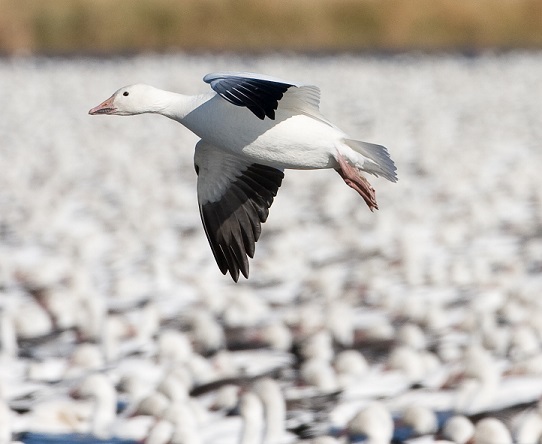The CFIA is confirming a positive case of the highly pathogenic avian influenza (HPAI) H5 strain found in a snow goose near Elrose, which is about three and half hours southeast of Lloydminster.
Ministry officials say this H5 strain has resulted in deaths in some species of wild birds, including snow geese and Canada geese, as well as some raptors.
The confirmation follows the detection of HPAI in poultry and wild birds in the United States and in several Canadian provinces.
Protecting commercial flocks includes preventative measures such as keeping wild birds away from poultry flocks and their food and water supply, limiting visitors, and monitoring bird health. Producers should contact their veterinarian immediately if they have concerns about the health status of their flocks. If HPAI is suspected, producers should also contact their local Canadian Food Inspection Agency office.
Small flocks are considered high-risk for HPAI infection as they are most often raised in an extensive fashion e.g. allowed access to outdoor pens or free-range. This means there is a high probability of contact with wild birds or environments visited by wild birds that may be contaminated with HPAI virus.
Residents are being asked to report any sick or dead birds to the Ministry of Environment to assist with monitoring efforts.
If you find any of the following, please contact the Inquiry Centre at 1-800-567-4224 or [email protected]:
- Clusters of two or more dead waterfowl (e.g. ducks, geese) or other water birds.
- Dead raptors or avian scavengers (e.g. ravens, crows, gulls).
- Raptors, waterfowl or avian scavengers that appear to be sick.
- Large groups of dead birds (e.g. more than 50) of any species.
Reports can also be made to the Canadian Wildlife Health Cooperative at 306-966-5815 or cwhc.wildlifesubmisisons.org.
Although the risk of transmission to humans is considered low, people should not touch dead birds or other wildlife with their bare hands. Protective eyewear and masks are recommended as an additional precaution. Hands should be thoroughly washed before and after with soap and water or alcohol-based hand sanitizer. Birds should be placed in a plastic bag prior to submission.
Regular food safety and hygiene precautions should be followed when preparing wild game. Hunters should avoid eating birds that are visibly ill.
Anyone with further questions on avian influenza in poultry can contact the Ministry of Agriculture’s Veterinary Unit at 1-306-787-2150.




